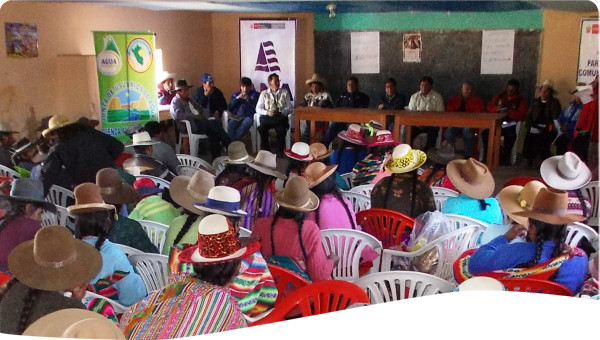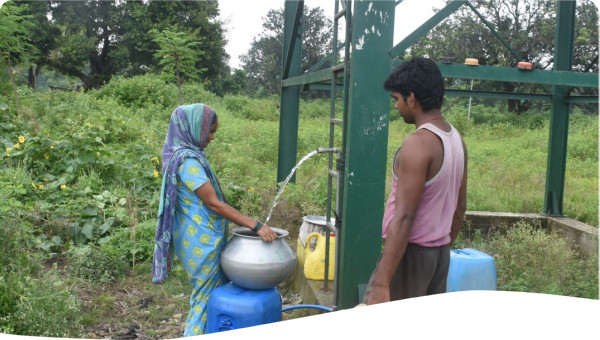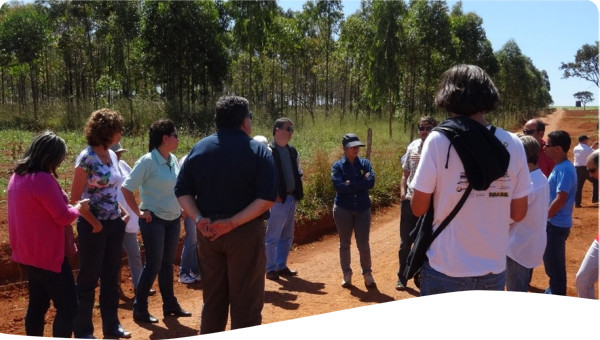Irrigation infrastructure is crucial for economic development in Fujian. However, due to incomplete water management, the existing water facilities do not satisfy the current development. Action has been taken by the infrastructure department of Fujian to cooperate with local farmers and organisations to explore participatory management and new mechanism of local water management. This case indicates that direct involvement of water users will result in rational use of water resources.
Over the last two decades, China has made noticeable improvements in rural agriculture irrigation and the improvement in rural agriculture production. Command and control methods of centrally planned economy in China have had consequences that agriculture production and the irrigation water infrastructure and management is controlled by the government and in collective ownership. Although it allows some degree of integrated management with participation of professional water managers, the major management is still government centered, which means there is no substantial public participation under this form.
The traditional and routine irrigation infrastructure and water use management system under the centrally planning regime resulted in malfunctioning infrastructure, outdated farming methods producing low agriculture yields and unprecedented water losses. Since the reform policy started from 1992, new policies implemented in the rural area of China, the dual management regime is applied in small rural communities. It means that centrally controlled decision and policy making is complemented by local participatory system.
These encouraged farmers to take part in governmental efforts to more effective water management without decreasing the agriculture production benefits. Such participatory management regime helps to address some problems of the traditional water management regime exists that cause the decrease of agriculture productivity. Problems include ineffective irrigation infrastructure and wasting water due to uneven water distribution and charging system.
All Fujian water managing authorities worked continuously to enhance the leadership and provide greater guidance to support small scale farmers. The Fujian government encouraged farmers to establish farmer associations that would take over of managing irrigation infrastructure, including operation and maintenance. The water managing authorities of Fujian issued a document "Enhance the Rural Farmer Water Resources Management Association Construction" to enhance the significance of establishing the farmer water user association, and identify the responsibility, requirements, and goal of these association. In addition to technical guidance and public awareness campaigns, farmers were provided by subsidies encouraging them to register in the farmer water association. Several small communities were selected to test how direct involvement of farmers will impact the performance of irrigation.
In total 88 pilot sites were selected where 73 farmer water associations applied new rules of agriculture water regime. Some works have been done in these water associations for instance, exploring the most effective water management regime, fund raising in water infrastructure building and maintenance, enhance the safety of water reservoir, reducing the water leakage, cleaning water sediments. The water association established a new water release system that secured a release of optimal water allocation considering dry and/or flood periods. The new established water charging system helps to streamline the water charging system and solving the charging dilemmas. After launching the participatory management approaches, the water fee is reasonable linked specifically to the water consumption of each farmer.
In recent years, the irrigation infrastructure department of Fujian provinces actively has cooperated with local farmer water management agencies and organizations to explore the innovative participatory management system and explore the new mechanism of local water management. The main reason was to achieve more effective water use for agricultural production. In order to do so, new regimes of water use and water fees were proposed to farmers that constituted farmers association.
The reform of the governance regime allowed farmers to elect their leadership and a market-oriented principle of water use charge created an incentive of water saving. Along with that an effective and clear charging system along with the participatory water management mechanism helped to resolve the dispute among the supplier and consumer. Establishing the public participatory mechanism, assign the ownership, water use and the management and decision making to the small-scale farms are the main achievements in Fujian province.
The community participation in irrigation water resource management proved to be suitable for small scale farms. It still needs to be tested in medium and large agriculture schemes.
The reduction in water use has been realized through implementation of water saving irrigation methods and direct involvement of farmers in agriculture water management.
 Case studies
Case studies


